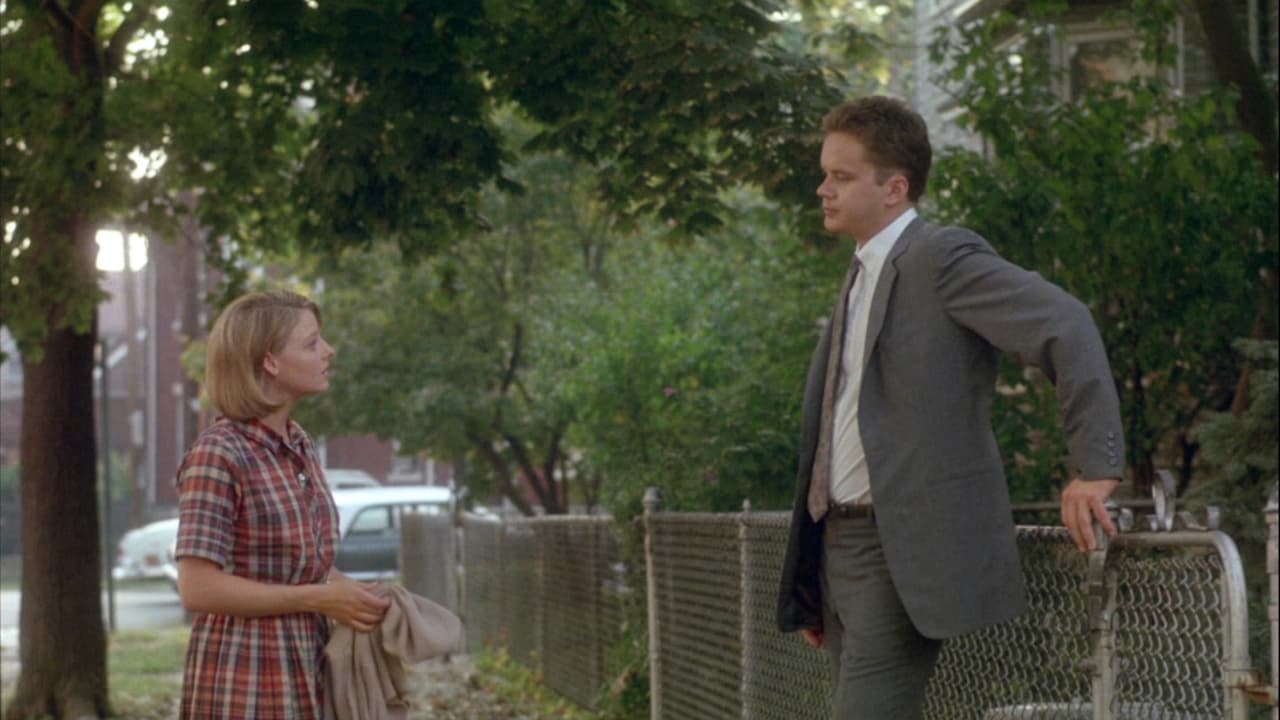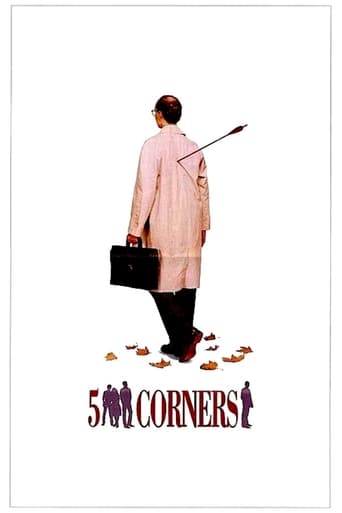Kattiera Nana
I think this is a new genre that they're all sort of working their way through it and haven't got all the kinks worked out yet but it's a genre that works for me.
Colibel
Terrible acting, screenplay and direction.
Wyatt
There's no way I can possibly love it entirely but I just think its ridiculously bad, but enjoyable at the same time.
EXodus25X
Younger versions of some of today's great actors show that yes, they were always good. Stand-out performances by John Turturro and Tim Robbins who carry the film from start to finish. Unfortunately it builds from the opening moments to an inevitable confrontation that turns into a complete cop out in my opinion, a great something could have happened here but instead nothing. Maybe the director was to afraid to go down the road I was hopping for, but the again I've heard others say it's some kind of Shakespearian metaphor. If that's the case it goes way over my head, and I still think my way is better. I am reminded of a documentary I recently watched, 10 Questions for the Dali Lama, the interviewer asked the Dali Lama about the non-violent resistant approach that he and his Tibetan followers have taken on, a view and method also taken up by Gandhi in India during the British occupation and Martin Luther King Jr. during the civil rights movement. He asked, at what point does violence have two equate violence, like during the Holocaust and World War II, does that mean the Allied forces did the wrong thing by stopping the Nazis, should we have just held non-violent protests and staged boycotts and sit-ins instead. Of course even the Dali Lama who I respect immensely dodged the question, he answered with something about in self-defense only. It feels as if the director of Five Corners doesn't want to have to answer that question either. Him and the Dali Lama, I'd say he's got good company. Those who have not seen Five Corners don't see the relevance of all this and I apologize for going so far off track, once you have seen the film you will hopefully see the reason. There is also a side story going on that I was sure must play into the main storyline but never does and that's a disappointment to both stories, because I feel they would be better for it. I've also read plenty of complaints about the DVD quality, who cares, wow we're spoiled by living in the Blue-Ray generation. Over all a well-acted film that if nothing else touches on some real interesting issues, and touching on real issues is more then most movies do.
bobm5508
This is an intriguing movie. The cast is mainly budding superstars. Their performances here are in keeping with their march up the ladder to A-list status. Tim Robbins especially connects with an ex-ruffian that has found his conscience. He wants in to a trip to Mississippi, to join MLK's freedom fighters. His explanation to a Malcom X type recruiter in Harlem, is heartfelt and well delivered. The rest perform their quirky roles well, thru some very quirky situations. The movie is very..... quirky.But....the writer, who went on to Oscar consideration later in life, has really stretched stuff to fit the plot. The mood change is radical, sub-plots are diverting, but unnecessary. And the worst to me was Jodie being "slugged" and knocked out. She remains knocked out while, carried from the subway, a car theft, a police shootout, a car crash, a 3rd floor Mom/Son confrontation, a climb to a rooftop and a 3 way struggle on the roof. Then she wakes up, reasonably clear headed!?!?! Hmmm! Too much for me. The "inept" police approach was good comedy and again, the cast showed the promise of bigger things to come!! Worth a watch! (in fact, watch the credits roll for a laugh out loud moment!)
jcanthony-1
Classics and Shakespearean scholars of the world, unite! This one is for you! Outside frame #1: Cupids whose arrows are directed toward anger and hatred, not toward instilling love.Inside frames: 1. Snow White rescued from troll-baby by Prince Charming, who doesn't want to stick around, with a side-kick who becomes disabled in the process, and who pines for Snow White's love. Troll-baby is cast into spell-bondage (prison).2. Snow White learns that troll-baby has been released from spell-bondage and is coming back around. Prince Charming also is back in the neighborhood, but isn't interested in fighting any more.3. Prince Charming has bigger dragons to slay: racism.4. Snow White bravely tackles troll-baby herself, but angers him in the process. Seeing no help from Prince Charming, she turns to the side-kick.5. Side-kick leads her to the underground, where troll-baby has power; troll-baby takes over and seizes her, leaving side-kick helpless on the ground.6. Prince Charming re-engages, re-unites with side-kick, and end up confronting troll-baby above ground (Bronx rooftops).Outside frame #2: Re-enter cupids with arrows directed toward anger and hatred.Sub-plots akin to Puck and Peasebottom in Shakespeare, each with comedic elements: 1. Glue-sniffing young women and the cupids, in elevators shafts and bowling alleys. 2. The police, alive and dead.Contrary view: Shakespeare would have had a marriage in there somewhere. There is a potential marriage, but it's not consummated or celebrated.Do I read too much into this one? Possibly. But enjoy it!!!! It's under-rated.
sgtslovak
Great movie with great acting. Having grown up in that part of the Bronx during that era, so much of the film rings true to me. As the film depicts there were good times & isolated horrific incidents. Shanley, the author has an ear for the rhythms of the era. Jodie Foster gives a nuanced understated performance portraying her character, making her very real.Tim Robbins in his pre-political gadfly days,also turns in an affecting performance.The supporting cast is excellent. I vividly recall the incident with the penguin in the fountain (much more benign in reality) from my teen age years. The film is a winner in every way.

